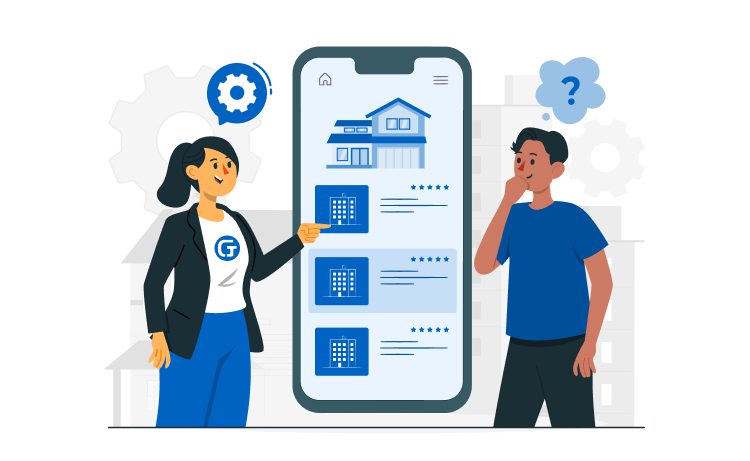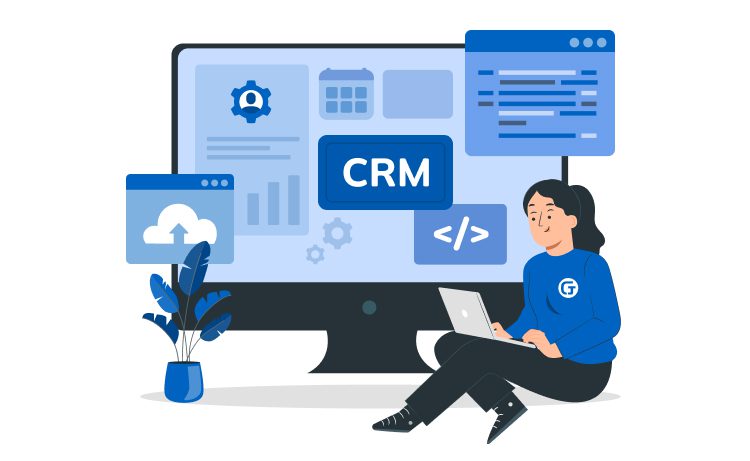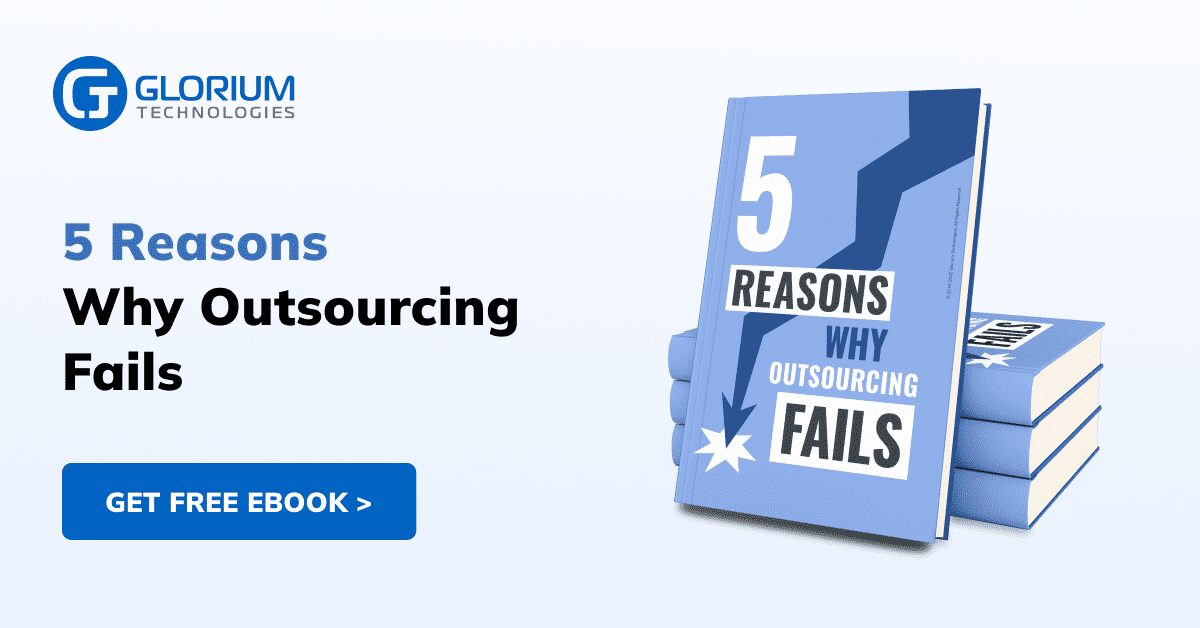
Best features for a sales-boosting property CRM



Businesses today are becoming more customer-oriented than ever before. As such, the real estate industry has begun to go the extra mile to exceed customer expectations.
The most effective way to quickly respond to emerging customer needs is through insights from customer management systems.
In order to attend to these needs, property owners, agents, and brokers need quick access to as much information about their prospects, leads, and existing clients as possible.
For this reason, Customer Relationship Management (CRM) systems are irreplaceable tools in the current business environment. CRM is a universal solution that brings real estate companies reliable results, timely information, and most importantly, allows them to have more time to make more property deals.
Content
A real estate Customer Relationship Management System (CRM) is a software solution that stores and manages customer records, facilitates the sales process, and allows property agents to effectively build a sales funnel.
In fact, according to a recent report by SuperOffice, the global CRM market is expected to exceed $80 billion+ in revenue by 2025. In other words, CRM is one of the fastest-growing markets.
Such demand proves that investment in sophisticated and adaptable CRM systems will only increase moving forward.
A well-tailored CRM allows agents and brokers to collect information about prospects and leads from different channels. Think of it as a one-stop-shop for information.
This data gives property professionals more insight into how and when to approach a lead to bring up successful negotiations and better offers.
In short, a CRM system serves as a sophisticated, smart database for organizing information about leads from multiple sources.
In addition, a robust CRM system allows extensive integration with external applications and services, making the lives of real estate agents much easier.
Aside from simply orchestrating information, a real estate CRM should also automate as many processes as possible. This includes segmenting customers, documentation flow, sending automatic reminders and follow-ups, scheduling calls and appointments, assigning leads, forming reports, and performing other tasks.
This provides agents with more time to work on deals rather than performing tedious administrative tasks. Every well-organized CRM also enables customization and scalability.
Being able to access CRM tools from any device has greatly increased the overall user experience. CRM systems now allow brokers to apply various filters, including browsing in specific locations in order to achieve more fine-tuned results.
Among many advantages of real estate CRM, the ability to make faster and better deals is at the top of the list. Brokers and agents are able to quickly access and manage accurate information sorted by desired parameters, automate aspects of the selling process, and build cohesive sales funnels.
Such powerful systems nurture quality leads, less time and effort. In fact, CRM systems have led to a 29% increase in sales with a 34% increase in sales productivity.
The following are a few interesting facts about CRM sales and conversions from Agile CRM:
According to a HubSpot report, around 72% of real estate agents use CRM in their day-to-day operations. Conversely, when asked why they still don’t use a CRM system, roughly 30% of companies stated that they were uncertain which solution was right for them.
While it is true that choosing and implementing a CRM system comes with certain challenges, it is clear that without a software solution, these companies are missing out on many opportunities.
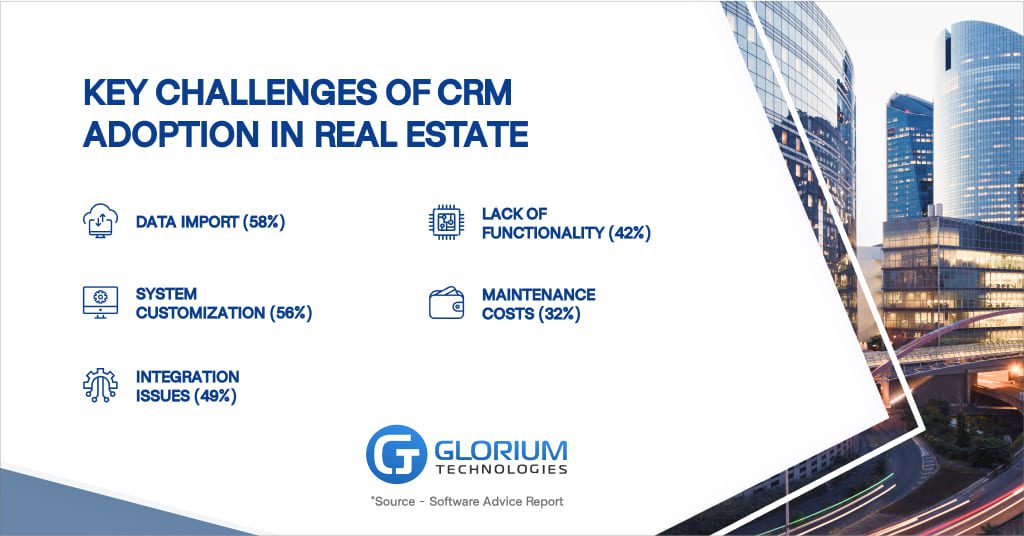
However, the benefits for property deals and conversions can bring an enormous ROI for real estate companies. Some businesses have even reported +245% in ROI after the implementation of a customer relationship management system into their workflow.
CRM has even been reported to enhance the individual value of some users: 96.2% of brokerages and 94.6% of agents said that a CRM system increased their productivity to some degree.
Despite the fact that the market for CRM solutions is saturated and the competition is very high, real estate startups and companies still have many opportunities to address the industry’s existing challenges.
To make a CRM system that’s competitive, there are some particular features that proptech companies need to consider in order to succeed in the market.
In a well-designed CRM, users should be able to create and automate marketing campaigns that are aimed to capture new leads. This requires the integration of modules that allow setting and fulfilling tasks between different platforms.
Drip marketing campaigns mostly enable the creation of customized email templates and are equipped to use other viable media for initiating and supporting communication and relationships with customers.
Advanced CRM often includes a contact manager feature to facilitate the communication process.
As monitoring the sales funnel is at the core of any real estate sales process, the primary function of a robust real estate CRM is seamless deal management.
A properly structured and segmented sales pipe allows agents to move to the top of the funnel smoothly and quickly, thus resulting in more quality deals.
In addition, data related to each customer and deal is also thoroughly organized to provide users with further analytics and insights.
As was mentioned earlier, having access to tons of data and customer records is not sufficient for holistic business decisions. A good CRM should be able to compile customized reports and analytics that will provide value to the agent.
Enabling personalized dashboards to see the dynamics of a particular relationship is a crucial component when pushing the lead to the next stage of the sales funnel, or to enhance customer retention.
It is extremely important for a CRM to be easily accessible from any device and platform. For this reason, having a mobile application or an adaptive mobile version is non-negotiable.
A mobile version should also enable an extended list of features, including live communication, integration with messaging apps, QR code scanning, etc.
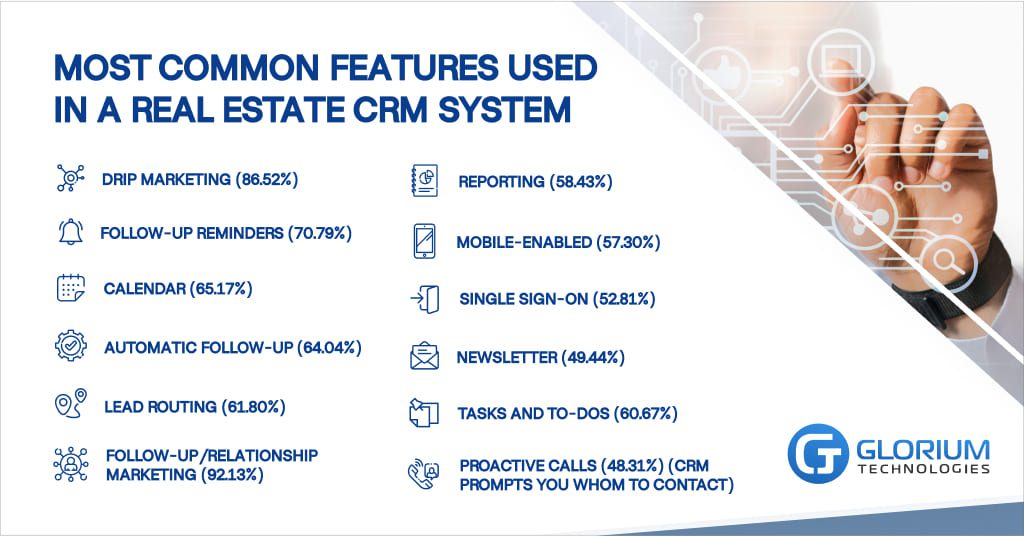
Integration remains a painful issue in the real estate software business. When it comes to CRM, it should support as many add-ons as possible and integrate well with Zapier, MailChimp, and even other CRMs to sustain the production workflow.
This not only simplifies the user experience but attracts users from other platforms, too.
Even with all the solutions available on the market, choosing the right real estate CRM system is no easy task. When it comes to selecting a solution, the choice usually boils down to two options: buying a ready-made solution or developing one in-house.
Most CRM solutions are SaaS-based systems that offer certain functionality for a subscription fee. Another option is investing in the development of a custom CRM.
Which option you choose largely depends on the size of your company and its current needs.
Among the popular and well-established leaders in the market of real estate CRMs, there are HubSpot, Pipedrive, The Wise Agent, Close, Zillow Premier Agent, and many others.
While these solutions offer some great features, they may not be a perfect fit for every real estate venture. If your real estate company is relatively small and doesn’t require a high level of customization, a ready-to-go application may be best.
However, if a company is large or has very specific business needs, it is better to invest in custom software development or navigate niche solutions that would offer more extensive, tailored functionality along with technical capabilities and scalability.
Essentially, cloud solutions are imperative in the market right now – be sure to keep that in mind when choosing any of the given CRM options.
Glorium is a software development company specializing in sophisticated tech solutions for the real estate sector. With more than 10 years of industry expertise, Glorium assists startups, helping them get to market quickly and stay ahead of the competition with superior service and tailored solutions.
By nurturing your ideas from concept to launch, our dedicated team helps bring your ideas to life. Learn more about our real estate software and application development solutions today.
